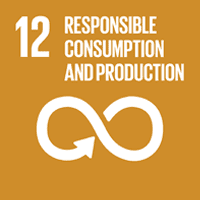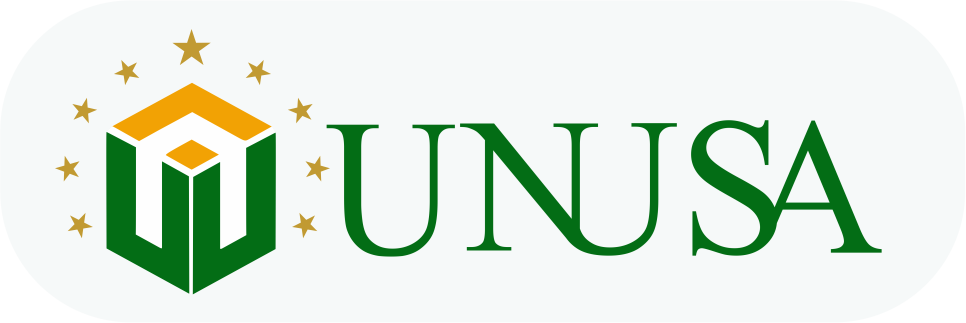12
KONSUMSI DAN PRODUKSI YANG BERTANGGUNG JAWAB
Menjamin Pola Produksi dan Konsumsi yang Berkelanjutan
Responsible Consumption and Production

Universitas Nahdlatul Ulama Surabaya (Unusa) has taken significant steps to ensure sustainability is embedded in its operations, focusing on sustainable sourcing, waste management, and efficient resource use. These measures reflect the university’s commitment to minimizing its environmental impact while promoting responsible consumption and production practices across its campus. By carefully selecting sustainable materials, UII ensures that its procurement processes align with its broader environmental goals, reducing the ecological footprint of its operations.
In terms of waste management, UII has implemented comprehensive strategies to minimize waste generation, encourage recycling, and promote the responsible disposal of materials. These initiatives are designed to not only manage waste effectively but also to raise awareness among students and staff about the importance of waste reduction and the circular economy. The university’s waste management practices are continuously evaluated to improve efficiency and foster a culture of sustainability on campus.
Additionally, UII is dedicated to optimizing its use of resources by implementing measures that reduce energy consumption, water usage, and the overall environmental impact of its operations. The university promotes energy-efficient technologies and practices throughout its facilities, while also ensuring responsible water management to support both sustainability and operational efficiency. By focusing on sustainable resource use, UII contributes to the global efforts of conserving resources for future generations.
Through these operational measures, UII not only aims to reduce its environmental impact but also to serve as a model for other institutions and organizations. The university’s approach to sustainable sourcing, waste management, and resource use demonstrates its commitment to creating a sustainable and environmentally responsible campus, while fostering a culture of sustainability among its students, faculty, and staff.
Unusa Operational Measures in Sustainability
- Ethical Sourcing of Food and Supplies
- Waste Disposal Policy - Hazardous Materials
- Waste Disposal Policy - Measurement and Reduction
- Plastic Use Minimization
- Disposable Items Minimization
- Extension to Outsourced Services and Supply Chain
- Extension to Equipment and Supply Chain
- Waste Measurement and Recycling
- Sustainability Report Publication
Unusa adheres to a comprehensive halal food policy that ensures ethical sourcing and prioritizes both nutritional quality and religious compliance. By maintaining halal and toyyib standards, UII supports ethical food production and responsible consumption, aligning with SDG 12: Responsible Consumption and Production.
Unusa implements stringent waste disposal policies, aligned with both national and ISO standards, ensuring safe handling of hazardous materials. These policies contribute to environmental protection and resource efficiency.
Unusa has formalized waste management policies since 2019, including methods to track and measure waste sent to landfill and waste recycled. The university’s zero waste program, led by the Department of Environmental Engineering, further promotes resource efficiency through waste minimization and circular economy principles.
Unusa has proactively reduced plastic usage by providing free drinking water access, reducing reliance on single-use plastic bottles. Since 2000, UII has championed plastic reduction initiatives as part of its commitment to responsible consumption, which is regularly updated to remain relevant and effective.
As part of its zero-waste initiatives, UII promotes alternatives to disposable items, enhancing its waste prevention strategy and resource efficiency. These efforts contribute directly to SDG 12’s focus on sustainable consumption patterns.
Unusa commitment to sustainable practices extends to outsourced services, incorporating these policies into service agreements and contracts, especially regarding waste management and plastic reduction.
Unusa sustainable policies also cover suppliers of equipment, stationery, and building contracts. By integrating these requirements into its broader quality assurance framework, Unusa ensures that sustainability is prioritized across its operational supply chain.
Unusa employs a decentralized waste management approach, where each faculty is encouraged to implement tailored waste reduction and recycling strategies. Although specific policies may vary, all faculties share a commitment to minimizing waste generation and maximizing recycling efforts. This decentralized model promotes accountability and efficiency in resource management, supporting SDG 12: Responsible Consumption and Production.
Unusa has published annual Sustainability Reports since 2021 to showcase its sustainability achievements, waste management initiatives, and progress toward responsible consumption goals. These reports reflect UII’s commitment to transparency and accountability, detailing resource efficiency improvements and aligning with SDG 12 by providing a comprehensive overview of the university’s environmental and operational impact.
